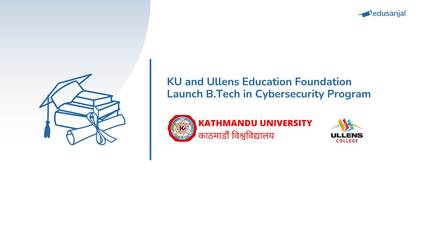Once, US author and comedian Demetri Martin had said, "I went to law school. I found it interesting for the first three weeks." Martin's quotation reflects how tedious legal education is. Boring things are discussed in classes every day. There are discussions on divorce, property, business transactions, rights and duties, and law and order, but students need more excitement.
Despite being monotonous, legal education is highly important in society. In this complex modern world, the importance of legal education has increased rapidly. Many issues emerge at every step, and we must step ahead to solve them with the help of legal experts, lawyers, and legal institutions.
Proper legal education is based on the country's rule of law, constitutionalism, and just society. Due to complex human behavior and the changing nature of time, we feel the necessity of law in every step of life. Still, a variety of problems hinder the development of the legal sector.
Law colleges are proliferating, yet they lack in quality and practical education, well-organized management, well-equipped library, moot court hall, research mechanism, and basic infrastructure required for students and internship opportunities. The establishment of colleges by individuals without a legal background and sufficient knowledge of this sector further exacerbates the issue. These colleges focus solely on theoretical knowledge, neglecting the importance of practical education. Consequently, when students enter the practical field, they are ill-equipped with the necessary knowledge and skills.
The development of the legal sector in Nepal has not been enhanced to the standard that when students come out of their colleges, they can go to court and proceed to litigate the cases. The new lawyers spend their valuable time carrying bags of senior advocates, hoping that they will share with them some opportunities. This is all due to a lack of practical education and confidence according to the demands of the times.
We produce hundreds of lawyers yearly, but most remain unemployed, carrying their graduation certificates. This trend has seriously reduced the attraction towards legal education. Additionally, it depends on the country's social, political, and economic development. Nepal is not achieving the desired result for such a large investment in education.
Though a bill on setting up a Lawyers' Academy was prepared by the Ministry of Law and Justice a few years ago, there needed to be more progress in translating the plan into reality which is the demand of the whole legal circles.
While discussing the problems of legal education, we should also concentrate on seeking solutions to these problems. Before granting permission (license) to set up law colleges, universities can check whether the license holders are eligible to open such colleges, whether they have a legal background, and whether they have sufficient knowledge and infrastructure to run those institutions.
This can be the most effective mechanism for solving the existing problems seen in legal education. Likewise, research-based and practical education should be enhanced by providing adequate opportunities for legal research, case law studies, seminars and conference, several confident-building processes like moot courts, trial processes, educational tours and many more so that future lawyers can develop their confidence to the full extent due to which they become able to handle legal issues.
Discussion on the verdict of the Supreme Court in Ambar Raut vs GoN in 2010 is significant in this regard. The apex court had directed the government and the parliament to arrange to provide legal education to case-deciding authorities (judges) in various quasi-judicial bodies who handle one-third of the total workload. Still, they need a legal education background. The CDOs, the Land Reform Authorities, the District Forest Officers, and the Conservation Officers have been deciding cases like arms and ammunition, state offense cases, land reform cases, land revenue cases, deforestation, and wildlife and national parks issues and have been exercising the right to award maximum quantum of a 20-year life sentence in some cases.
Currently, the National Judicial Academy has taken a positive step by providing training for Chief District Officers, who work as judges in some cases, based on the Supreme Court's verdict. However, since law colleges are primarily responsible for legal education, they alone are not sufficient to make policies in legal education. It is crucial for the Supreme Court, Nepal Bar Council, Nepal Bar Association, and other legal institutions to take a more active role in making legal education more practical.
In conclusion, legal education is necessary to protect people's rights, maintain the rule of law, and ultimately create a just society. Henceforth, joint efforts by the Supreme Court, the Ministry of Law and Justice, the Nepal Bar Council, and the Nepal Bar Association are required to create a suitable environment for legal education.












